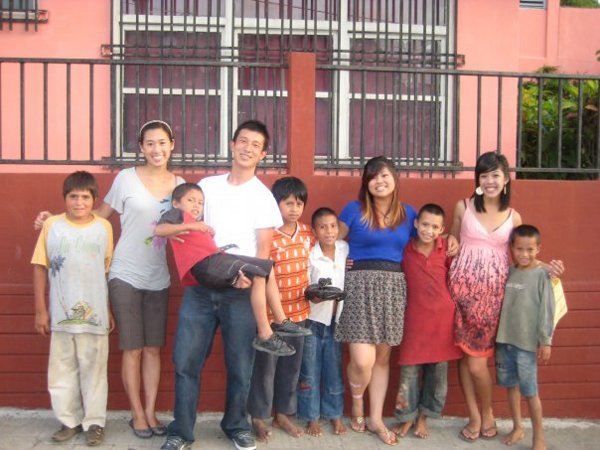
BORN INTO A TYPICAL Asian immigrant family, I haven’t lived the most interesting life. I never had many of the luxuries that my friends enjoyed or owned the newest, biggest, most colorful toys.
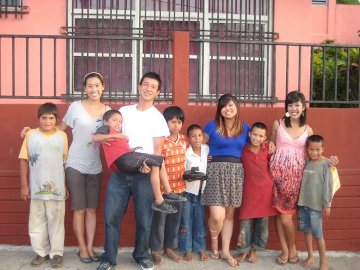


BORN INTO A TYPICAL Asian immigrant family, I haven’t lived the most interesting life. I never had many of the luxuries that my friends enjoyed or owned the newest, biggest, most colorful toys.
All my parents ever talked of was earning straight A’s, winning awards, getting me into college, then finding me a successful job as a rich doctor or lawyer. In order to persuade me to do well, my parents would scare me by saying, “If you don’t earn good grades, you’ll end up like the people in Latin American countries: poor, mosquito-bitten, and without a future.”
Until very recently, that image had always popped into my mind whenever someone brought up the name of a Latin American country. Only until I visited Nicaragua did my perception change, permanently.
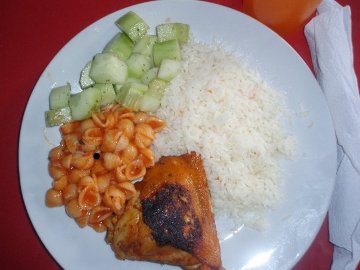
Nicaragua. Before participating on this trip, all I ever heard about Nicaragua was of the violent Contra affair through my U.S. History class. Of course, I was slightly nervous to be going to such a foreign country, away from the protective, American security I had grown accustomed to my whole life. My worst nightmare was getting kidnapped in the middle of my sleep and held hostage just because I was an American, a foreigner.
It took me only about 3 hours to lose my uneasiness, when the first kid on the street offered me a handmade cricket, skillfully created from a leaf of a nearby tree. From that point on, I began to view Nicaragua as less of a foreign country, but more of a unique place with its own special qualities and culture to be discovered. Every new day would be a new experience, and as a traveler, I aspired to live each experience to its fullest.
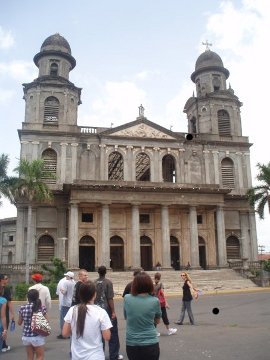
Our first lesson in Nicaragua was to learn and understand both the history of Nicaraguan culture, and the amount of U.S. involvement in Nicaragua. By the end of the first day, I was amazed at how much of a role America has played in Nicaragua. It was after these lessons that I realized how important traveling to a foreign country really is. I got to learn a different side of an argument than my textbook taught me. I learned how the Sandinista Revolution affected local Nicaraguans, not Americans. I learned how much horror Nicaragua had gone through to maintain their independence.
By the end of the first week, I felt pretty comfortable living at my hostel in the middle of Matagalpa, Nicaragua. I had befriended some locals, eaten over ten Nicaraguan meals, and visited countless different organizations and neighborhoods. Of course, speaking absolutely no Spanish hindered my exploration a bit, but my elaborate sign language helped me get my message through. I also relied heavily on the native Spanish speakers in our 26-person group, but even they encountered obstacles.
Apparently, Nicaraguan Spanish differed from the Mexican Spanish my travel mates were used to. However, regardless of all of the obstacles, we still managed to make friends, interview locals, and enjoy our time in Nicaragua.
Traveling to Nicaragua allowed me to take advantage of countless opportunities I never thought I’d get the chance to have. Over the course of the three weeks I stayed in Nicaragua, I hiked a huge volcano, flipped my canoe into a Nicaragua lake, cannonballed into a Nicaraguan lagoon, partied at a Nicaraguan club, and played a game of Connect 4 with a local.
I am not only grateful for all of the opportunities I enjoyed, but for all of the friends I made and all of the fond memories I can cherish for the rest of my life.
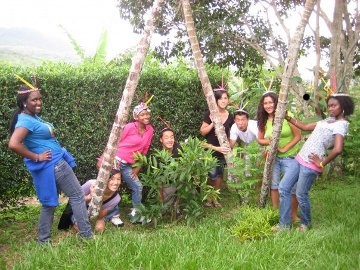
When I returned home, I began to see things in a different perspective. My firsthand look at poverty and inequality made me question my own materialistic values. I realized that I am extremely lucky to live in such a comfortable life that I do, and that I should live the rest of my life benefitting others, and helping others reach the level of comfort that I enjoy on a daily basis. My trip to Nicaragua helped me grow as a leader and as a more caring and compassionate person. However, my BIGGEST takeaway is that even though our world is divided into over 200 countries and countless languages, we are all humans.
We all know how to love, laugh, and enjoy life. No matter how different we are on the outside, we are more similar than anyone can ever believe.
Do you remember your very first travel experience? Share your reflections with our Brave New Travelers in the comment section below.
Learn more about the Matador Youth Scholarship Fund.